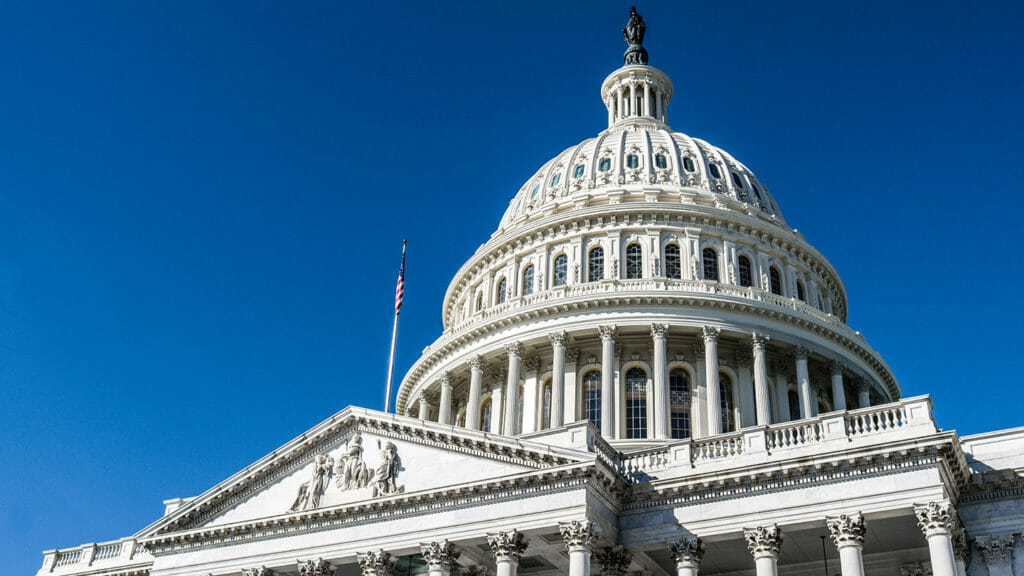
Home care stakeholders have been busy on Capitol Hill voicing concerns about a controversial provision of the proposed Medicaid Access Rule.
The National Association for Home Care & Hospice and Home Care Association of America met with the Office of Management and Budget last week to discuss the Access Rule’s so-called 80/20 provision. The provision, if finalized, would require that 80% of Medicaid payments for personal care, home health and homemaker services be spent on workers’ compensation.
“If that one provision is finalized as proposed, it would be so detrimental that we’d likely lose a significant portion of our service delivery base and people would go without care,” Damon Terzaghi, NAHC’s director of Medicaid HCBS (home- and community-based services) said in an interview with McKnight’s Home Care Daily Pulse. “It would truly be devastating.”
Both NAHC, which met with OMB Monday, and HCAOA, which talked to OMB Tuesday, have pointed out that a blanket cost-setting ratio would hold many agencies to an unachievable standard. Providers that cannot afford to allocate 80% of their Medicaid dollars to employee wages may have to cut staff or services to remain active, or leave the Medicaid space altogether, the experts noted. And the ultimate burden, they said, would be placed on patients, who could lose access to these critical services.
“A one size fits-all approach just doesn’t make any sense; I mean it’s unworkable,” Eric Reinarman, vice president of government affairs at HCAOA, said in an interview with McKnight’s Home Care Daily Pulse. “A proportion could work in one state and not in another, and which ones would work would vary wildly… it’s not sound policy.”
Though no timeline is certain, experts expect the rule to be finalized around the beginning of April.
A ‘swift and severe’ impact
Reinarman said the 80/20 provision’s effect on patients’ access to HCBS would be “swift and severe.” HCAOA also noted concerns about the provision’s strict spending restrictions. After paying staff members, affected providers would be left with only 20% of their Medicaid reimbursement to spend on the other critical parts of running their business — such as administrative tasks and staff training.
“Other pieces that are important to retention, like the training and the background checks, all that falls under the 20%,” Jason Lee, chief executive officer of HCAOA, told McKnight’s Home Care Daily Pulse. “When you implement this, while you may be helping on the wages side, you’re definitely curtailing the other parts of retention and recruitment.”
Perhaps more disappointing is the fact that the Medicaid Access Rule contains plenty of good provisions, providers noted. HCAOA and NAHC referenced Access Reporting requirements, Payment Rate Transparency, a new HCBS Quality Measures set and Incident Management System as good things put forth by the rule. But if finalized, the effect of the 80/20 mandate would be so severe that the Medicaid Access Rule would likely be a net loss for providers, according to Terzaghi.
“I would say 90% of the rule is great. There’s so much stuff in there that is valuable and necessary,” he said. “It’s so frustrating that this one provision has really overshadowed everything else.”
More pressure on OMB
Terzaghi noted that other groups including ANCOR, an organization that advocates for LTSS providers helping individuals with disabilities, and providers like Help at Home and Modivcare are also actively voicing their concerns about the rule in Washington, DC.
“It’s great to see that everybody is speaking from the same page and we all have the same similar concerns,” Lee said. “It’s not just the industry and not just our association … but also it’s state departments.”
Both HCAOA and NAHC called for continued advocacy against the 80/20 provision.
“Other providers should be putting in, they should be requesting meetings, they should be telling their story to ensure that the entire industry has a chance to express just how devastating this should be,” Terzaghi said.

